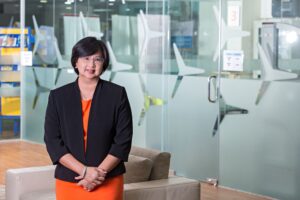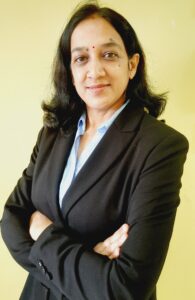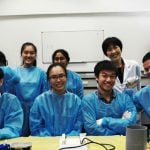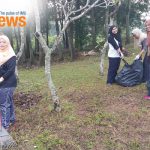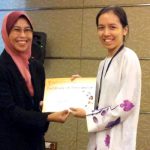Women scientists aim to pave the future for the younger generation through hard work and dedication, and to receive the acknowledgement they deserve from the community.
If there is a time where science is most important, the time is now with the COVID-19 pandemic. And if there is an era where gender should not come into question anymore, it is also now where women scientists are making major strides in the field. Dr Nur Alia Binti Johari is a prime example for this. At just 29, she’s a faculty member at the International Medical University (IMU)’s Institute for Research, Development and Innovation (IRDI), a career researcher, and has a master degree in public health specialising in infectious disease transmission. One of the latest projects she was involved in revolved around the coronavirus. In 2020, the IMU IRDI team had volunteered to perform SARS-CoV-2 testing to help ease the congestion of testing done at the National Public Health Laboratory (NPHL). Dr Nur Alia (who was one of the co-investigators for the project) and the IRDI team also devised and published a novel sample pooling strategy to expedite the testing turnaround time. Not only did this method increase testing capacity, it also proved to be cost effective without compromising testing accuracy. On her own accord, Dr Nur Alia was one of the women scientists (and the only Malaysian scientist) who went on a field expedition to Antarctica with the British Antarctic Survey (BAS) in 2019, as part of a research project funded by the Sultan Mizan Antarctic Research Foundation (YPASM) in collaboration with renowned researchers from all over the world to study the functional diversity of Antarctic soil bacteria. The list of achievements goes on, including winning a RM1.15 million international grant with the IRDI research team (led by Prof Datuk Dr Lokman, director of IRDI) in 2021 to study the burden of pneumonia in children, and publishing her PhD research on dengue transmission in Malaysia. Ending up in public health was a matter of fate, says Dr Nur Alia. “In the final year of my Biomedical Sciences degree, I came across the field of public health, which I found very interesting as it is an interdisciplinary field that connects science with the people. I decided to pursue my Masters in this field (both degrees were from Imperial College London) and discovered a special interest in infectious diseases. So really, instead of choosing the specialisation, it chose me instead,” she shares. She credits women scientists as her inspiration. “I was exposed to a lot of leadership from women in science when I was a student. When I returned to Malaysia for my PhD in the IMU, my supervisor was Prof Patricia Lim, Head, Research Lab and Support Services at IRDI, who provided really good guidance and exposure to me as well as the idea of women scientists in leadership roles,” she says.
It’s interesting to note that less than 30 percent of researchers worldwide are women, and of that small percentage, only three percent of Nobel Prize in science has been awarded to women thus far. According to UNESCO data (2014-2016), only around 30 percent of all female students select STEM-related fields in higher education.
“We cannot deny that gender bias still occurs in the scientific world and numerous well-designed studies show this,” says Prof Winnie, Dean of Health Sciences at IMU, a Professor at the Department of Nutrition & Dietetics, and practicing Dietitian in IMU Healthcare. The issue with that, she adds, is that it affects grading, professional hiring, mentoring, promotion, respect, grant proposal success and pay. “But these challenges should not hinder women from entering the scientific world! Awareness is increasing and policies on gender equality and fairness have been implemented so women should not be deterred. There are also many role models of successful women in academia and research in almost every field of science that young aspiring women scientists can follow and seek advice from,” says Prof Winnie.
She herself is someone to look up to: Prof Winnie is working on a research that is primarily focused on the nutritional aspects of endocrine-related diseases such as bone health, kidney disease, Type 2 diabetes and obesity. “Currently I am working on a research to study the effects of diabetes-specific formula on blood glucose control among Type 2 diabetes patients in primary care setting,” she shares. Her research findings will help develop an effective nutritional solution for people with diabetes to have better control of their condition and ultimately, a better quality of life.
Despite the biases, women scientists should look within themselves to achieve their successes, says Dr Hira Choudhury, currently heading the Department of Pharmaceutical Technology in the School of Pharmacy at IMU and listed in the top two percent scientists in their main subfield discipline for the year 2019 by a group of researchers from Stanford University. “The main gadgets that keep us energised are our interest in the field of research, continuous questions arising in our mind, and the most important, eagerness to contribute to society,” she says.
She remains positive about the future for women scientists. “These days, the contribution of women significantly increases in research and development in science since the early 1990s. Simultaneously, different national and international research awards are empowering women to contribute to science to bring their ideas in the field of research, which will add value to science to have a better tomorrow,” she says. Dr. Choudhury is contributing her expertise in promoting better healthcare. Her current research interests focus on developing efficient and safe therapeutics for the treatment of central nervous system disorders like Parkinson’s disease, schizophrenia and dementia.
Adding to her experience is the five years she spent in the Discovery Research Unit of Dr Reddy’s Lab Ltd in India involving drug metabolism and pharmacokinetic studies on new chemical entities. “My goal is to establish a discovery research unit in collaboration with different researchers and work together for the benefit of humankind,” shares Dr Choudhury. All three women scientists agree that change is coming where younger women are more ready to take on a career in science. The only thing that limits oneself is the mindset of the individual herself. “Science is for everyone, and it’s everywhere. The opportunities are endless and you just have to trust your own gut and go for it,” says Dr Nur Alia.
The current education system needs to play a role as well, claims Prof Winnie. “The interest in science must begin at school. Having programmes that expose young students to role models of women in various scientific fields will help inspire them and empower young scientists.”
“The idea is that women can equally contribute to science with men. We are currently a smaller part of science so women should come forward with their groundbreaking research. The nation needs talent and innovative ideas from all, irrespective of gender. It’s high time to explore the world and contribute to having a better future,” says Dr Choudhury.





